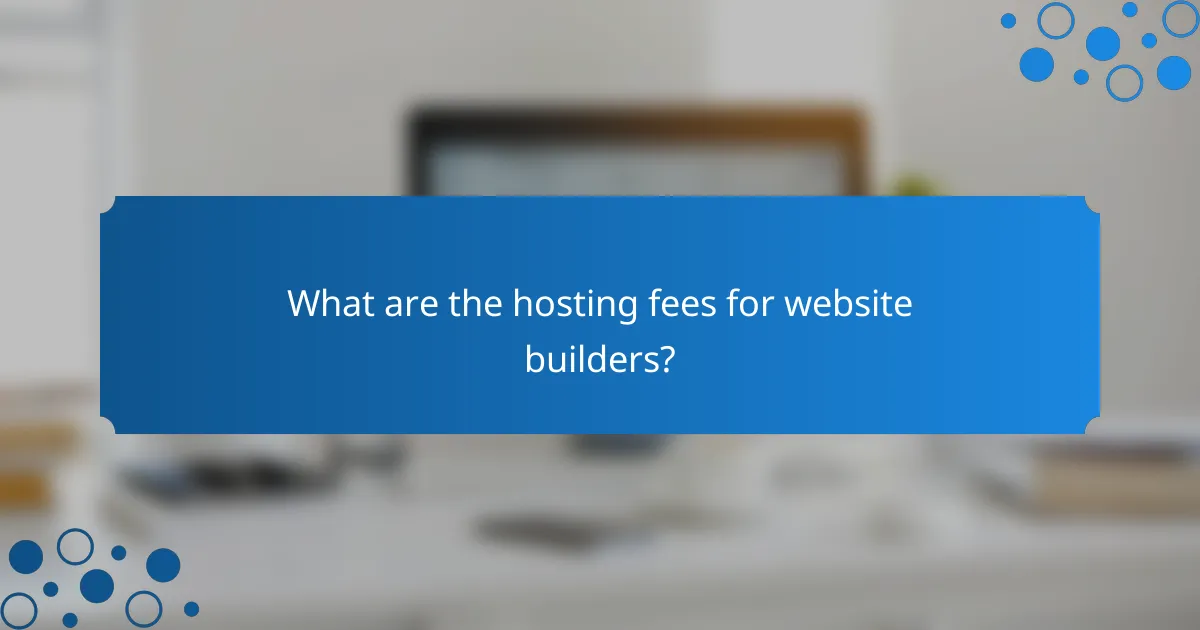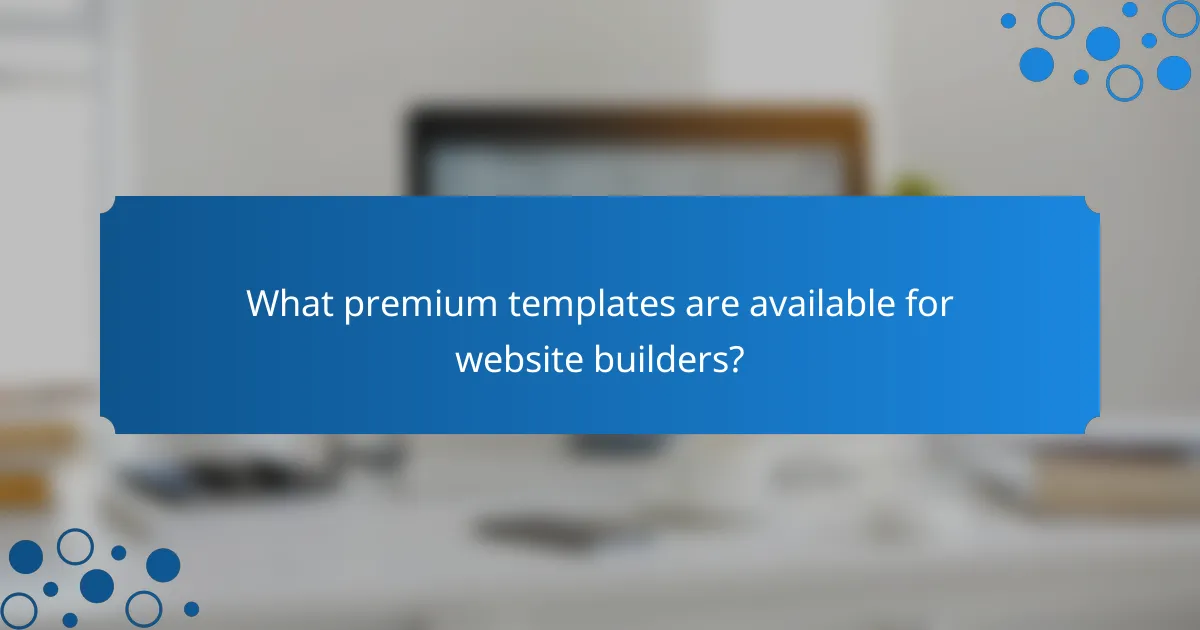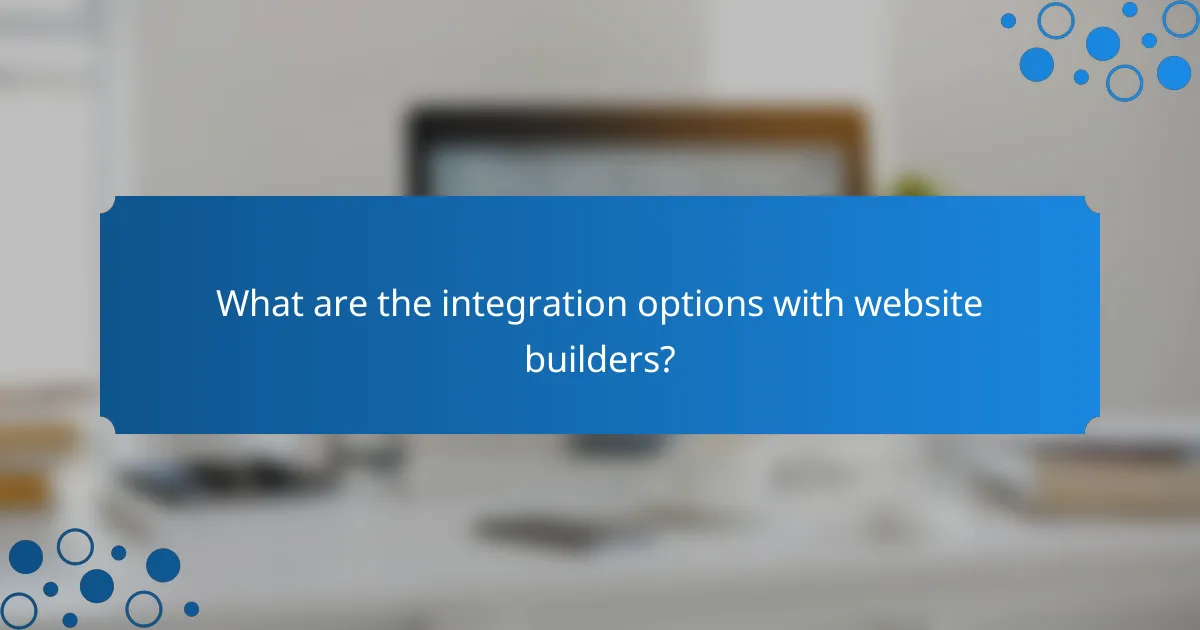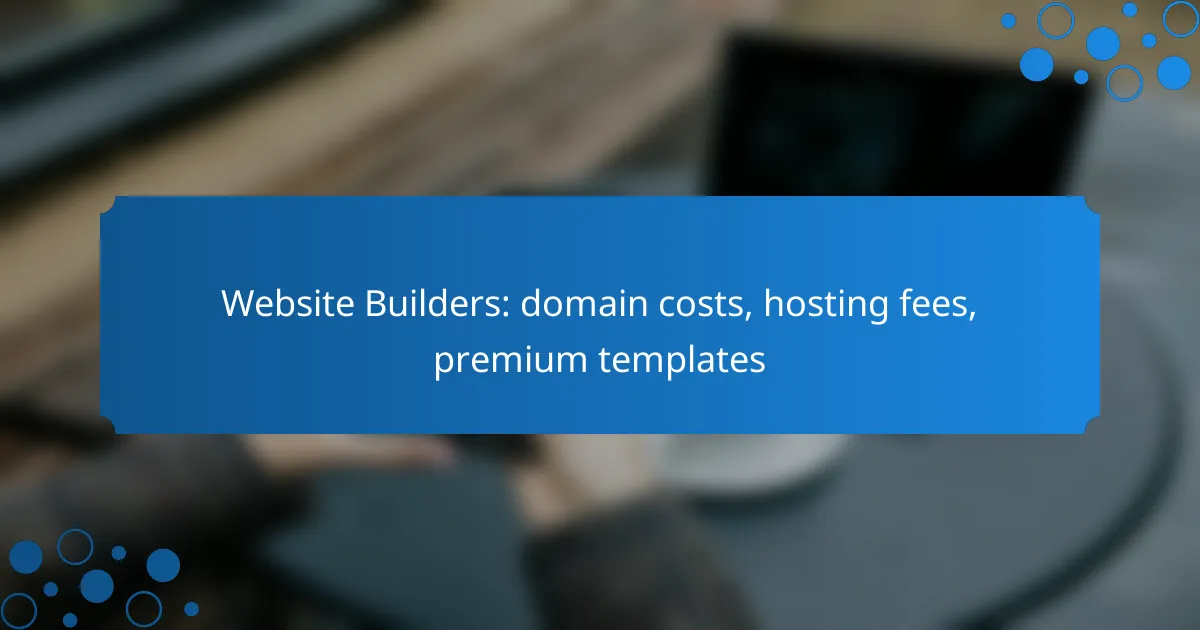When building a website, understanding the costs associated with domain registration, hosting fees, and premium templates is essential. In New Zealand, domain registration typically ranges from NZD 10 to NZD 50 per year, while hosting fees can vary significantly based on the services provided. Additionally, premium templates offer professionally designed options that enhance both the aesthetics and functionality of your site, catering to diverse needs and industries.

What are the costs of domain registration in New Zealand?
The costs of domain registration in New Zealand typically range from NZD 10 to NZD 50 per year, depending on the domain extension and registrar. Factors such as renewal fees, privacy protection, and additional services can also influence the overall cost.
Average domain registration fees
On average, registering a .nz domain costs around NZD 20 to NZD 30 annually. Other popular extensions like .com or .net may range from NZD 15 to NZD 40. It’s essential to compare prices across different registrars to find the best deal.
Popular domain registrars in New Zealand
Some well-known domain registrars in New Zealand include 1st Domains, Freeparking, and Crazy Domains. These registrars offer various services, including domain registration, web hosting, and email solutions, often with competitive pricing.
Factors affecting domain costs
Moreover, promotional offers and discounts may be available, especially for first-time customers. Always check for renewal rates, as initial registration fees can differ significantly from renewal costs.

What are the hosting fees for website builders?
Hosting fees for website builders vary based on the type of service and features offered. Generally, users can expect to pay monthly or annual fees that cover server space, bandwidth, and additional services like security and support.
Typical hosting plans and prices
Most website builders offer a range of hosting plans, typically starting from around NZD 10 to NZD 30 per month for basic shared hosting. More advanced plans, which may include features like increased storage and enhanced security, can range from NZD 30 to NZD 100 monthly.
Annual plans often provide a discount, making them more economical in the long run. It’s advisable to compare the features included in each plan to ensure you choose one that meets your needs without paying for unnecessary extras.
Top hosting providers in New Zealand
Some of the leading hosting providers in New Zealand include SiteHost, 1st Domains, and Crazy Domains. These companies offer a variety of hosting options tailored to different business sizes and needs.
When selecting a provider, consider factors such as customer support, uptime guarantees, and scalability. Reading customer reviews can also provide insight into the reliability and performance of the hosting services.
Shared vs. dedicated hosting costs
Shared hosting is generally the most affordable option, with costs ranging from NZD 10 to NZD 30 per month. This type of hosting shares server resources among multiple users, making it suitable for smaller websites with lower traffic.
In contrast, dedicated hosting provides an entire server for a single user, which can significantly increase costs, typically starting from NZD 100 per month and going up based on the server specifications. This option is ideal for larger websites or those experiencing high traffic, as it offers better performance and security.

What premium templates are available for website builders?
Premium templates for website builders are professionally designed layouts that enhance the visual appeal and functionality of a website. These templates often include advanced features and customization options, making them suitable for various industries and purposes.
Leading platforms offering premium templates
Several popular website builders provide premium templates, including Wix, Squarespace, and WordPress. Wix offers a diverse range of templates tailored for different niches, while Squarespace is known for its sleek, modern designs. WordPress, with its vast library of themes, allows users to choose from thousands of options, many of which are premium.
Shopify is another notable platform, especially for e-commerce, offering templates that are optimized for online stores. Each of these platforms has unique strengths, so selecting one depends on your specific needs and preferences.
Price ranges for premium templates
The cost of premium templates can vary significantly based on the platform and the complexity of the design. Generally, prices range from around $30 to $200 per template. Some platforms, like WordPress, may offer subscription models where users pay a monthly fee for access to multiple premium themes.
Additionally, some website builders include premium templates as part of their subscription plans, eliminating the need for separate purchases. Always check if the template price includes updates and support, as these factors can influence long-term value.
Customization options for templates
Most premium templates come with a variety of customization options, allowing users to tailor designs to their brand. Common features include adjustable color schemes, font selections, and layout modifications. Many platforms also offer drag-and-drop editors, making it easier to personalize templates without coding knowledge.
However, it’s essential to consider the limitations of each template. Some may restrict certain customizations or require additional fees for advanced features. Always review the template’s documentation to understand what can and cannot be customized before making a purchase.

How to choose the right website builder?
Choosing the right website builder involves evaluating your specific needs, budget, and technical skills. Consider factors such as domain costs, hosting fees, and the availability of premium templates to find a solution that fits your requirements.
Key features to consider
When selecting a website builder, focus on essential features like ease of use, customization options, and customer support. Look for platforms that offer drag-and-drop functionality, a variety of templates, and responsive design capabilities to ensure your site looks good on all devices.
Additionally, consider the pricing structure, including domain registration and hosting fees. Some builders may include these costs in their packages, while others may charge separately, so clarify what is included before committing.
Comparison of popular website builders
Popular website builders like Wix, Squarespace, and WordPress.com each have unique strengths. Wix is known for its user-friendly interface and extensive template library, making it ideal for beginners. Squarespace offers elegant designs and strong e-commerce features, suitable for businesses looking to sell online.
WordPress.com provides flexibility and scalability, particularly for those who may want to expand their site in the future. Pricing can vary significantly; for example, basic plans may start around $10 per month, while premium features can increase costs to $30 or more monthly. Always check for current promotions or bundled services to maximize your investment.

What are the integration options with website builders?
Website builders offer various integration options that enhance functionality and streamline operations. These integrations typically include tools for e-commerce, marketing, analytics, and customer support, allowing businesses to create a comprehensive online presence.
Common integrations for New Zealand businesses
New Zealand businesses often integrate payment gateways like PayPal and Stripe to facilitate online transactions. Additionally, tools such as Mailchimp for email marketing and Google Analytics for tracking website performance are popular choices. Social media integrations with platforms like Facebook and Instagram help enhance customer engagement and drive traffic.
Many website builders also support local shipping providers, which is essential for e-commerce businesses. Integrating these services can simplify logistics and improve customer satisfaction.
Benefits of using integrated tools
Using integrated tools with website builders can significantly enhance efficiency and effectiveness. For instance, automating email marketing campaigns can save time and ensure consistent communication with customers. This leads to improved customer retention and higher conversion rates.
Moreover, integrated analytics tools provide valuable insights into user behavior, enabling businesses to make data-driven decisions. This can lead to optimized marketing strategies and better allocation of resources, ultimately increasing profitability.

What are the future trends in website building?
Future trends in website building are increasingly shaped by advancements in technology, user preferences, and the integration of artificial intelligence. As these elements evolve, they will significantly influence how websites are designed, built, and maintained.
Emerging technologies in website design
Emerging technologies such as augmented reality (AR) and virtual reality (VR) are beginning to transform website design by providing immersive experiences. These technologies allow users to interact with content in innovative ways, enhancing engagement and retention.
Additionally, responsive design continues to be crucial as more users access websites via mobile devices. Tools that facilitate adaptive layouts and faster loading times are becoming standard, ensuring a seamless user experience across various platforms.
Impact of AI on website builders
Artificial intelligence is revolutionizing website builders by automating design processes and personalizing user experiences. AI-driven tools can analyze user behavior and preferences, allowing for tailored content and layout suggestions that enhance usability.
Moreover, AI can streamline the development process by generating code and optimizing performance, reducing the time and expertise needed to create functional websites. This democratization of web design empowers small businesses and individuals to build professional-looking sites without extensive technical knowledge.
Predictions for the website building market
The website building market is expected to grow significantly, driven by the increasing demand for online presence among businesses and individuals. As more companies recognize the importance of digital marketing, the need for user-friendly website builders will continue to rise.
Furthermore, subscription-based models are likely to dominate, offering users flexible pricing options and access to premium features. As competition increases, providers may focus on enhancing customer support and integrating advanced functionalities to attract and retain users.
